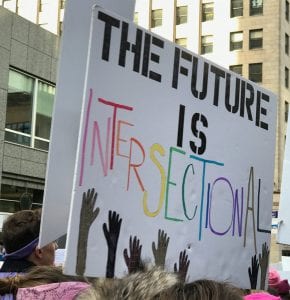By Dr Shreya Atrey, Lecturer in Law (University of Bristol Law School)

I recently published an article in the Human Rights Quarterly titled ‘Women’s Human Rights: From Progress to Transformation, An Intersectional Response to Martha Nussbaum.’ As the title suggests the article is an extended rumination over Martha Nussbaum’s earlier article in the same journal titled ‘Women’s Progress and Women’s Human Rights.’ My article examines the account of women’s progress that Nussbaum presented. In particular, it asks the ‘intersectional question’ about women’s progress made under the UN Convention on the Elimination of All Forms of Discrimination Against Women (CEDAW). The account of progress appears wanting when this question is asked; and I try to spell out the reasons for why post-colonial, Dalit and so-called ‘third world’ feminisms fall by the wayside of women’s progress when progress is examined closely. I argue that progress is transformative only when it is inclusive, i.e. intersectional in that it sees women not only as disadvantaged by their sex or gender alone but also on the basis of their race, colour, religion, caste, sexual orientation, age, disability, etc. Readers may see the article for more on this, especially pages 877-884 for a Dalit feminist critique.
Here, I want to pre-empt two kinds of readings which are given to intersectional scholarship like this one. I am not saying that either Nussbaum’s or my own article opens up intersectional scholarship to these readings. But that often, this kind of work is read in a particular light which casts a shadow of anxiety over intersectionality. I want to air and address two ways in which it manifests itself and show that there are ways of overcoming it and finding such scholarship worthwhile. (more…)
